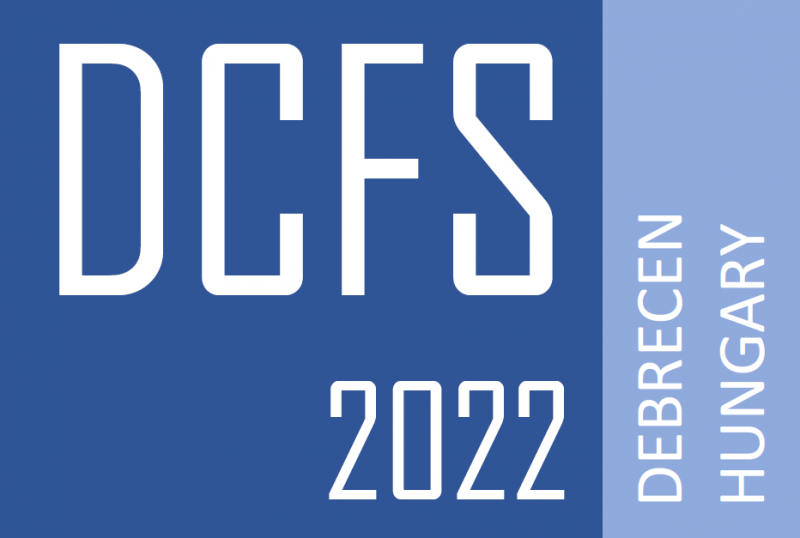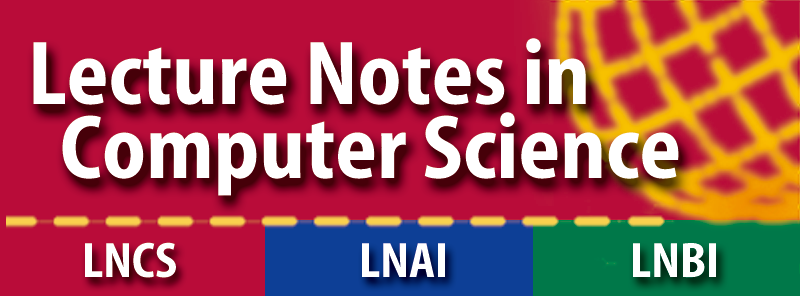- magyar
- english
- Русский
DCFS 2022 - 24th International Conference on Descriptional Complexity of Formal systems
Important Dates
- Submission deadline:
April 10April 24, 2022, - Notification of acceptance:
May 16May 23, 2022, - Final version for proceedings: May 29, 2022.

General Information
The 24th edition of DCFS is organized by the Faculty of Informatics of the University of Debrecen, Hungary, and by the IFIP Working Group 1.02 "Descriptional Complexity". It is co-located with NCMA 2022, the 12th International Workshop on Non-Classical Models of Automata and Applications (August 26 - 27, 2022) and MCU 2022, the 9th Conference on Machines, Computations and Universality (August 31 – September 2, 2022).
The conference will take place in a hybrid format: the possibility of both, in-person and online participation will be provided.
The general website of the DFCS conference series: http://www.informatik.uni-giessen.de/dcfs/
Proceedings
The DCFS conference series with the LNCS volumes on SpringerLink: https://link.springer.com/conference/dcfs
The volume containing the proceedings of DCFS 2022 is available online at: https://link.springer.com/book/10.1007/978-3-031-13257-5

Special Issue
A special issue of the journal Theoretical Computer Science will be devoted to revised and extended versions of selected papers of the conference.
Downloads
- The list of participants is available.
- The updated call for papers in single page format for printing is available.
Topics
Submissions concerning the descriptional complexity of formal systems and structures (and its applications) are invited for DCFS 2022. Original papers are sought in all aspects of descriptional complexity. Topics include, but are not limited to:
- Automata, grammars, languages and other formal systems; various modes of operations and complexity measures.
- Succinctness of description of objects, state-explosion-like phenomena.
- Circuit complexity of Boolean functions and related measures.
- Size complexity of formal systems.
- Structural complexity of formal systems.
- Trade-offs between computational models and mode of operation.
- Applications of formal systems -- for instance in software and hardware testing, in dialogue systems, in systems modeling or in modeling natural languages -- and their complexity constraints.
- Co-operating formal systems.
- Size or structural complexity of formal systems for modeling natural languages.
- Complexity aspects related to the combinatorics of words.
- Descriptional complexity in resource-bounded or structure-bounded environments.
- Structural complexity as related to descriptional complexity.
- Frontiers between decidability and undecidability.
- Universality and reversibility.
- Nature-motivated (bio-inspired) architectures and unconventional models of computing.
- Blum Static (Kolmogorov/Chaitin) complexity, algorithmic information.


